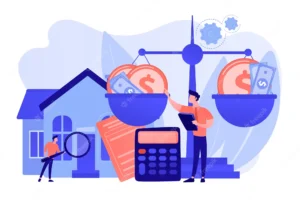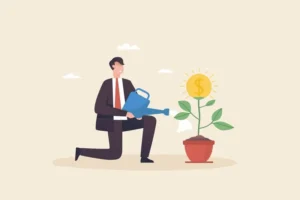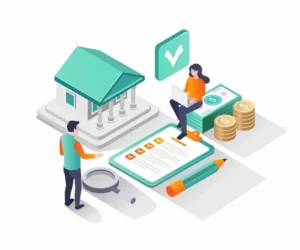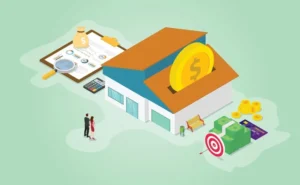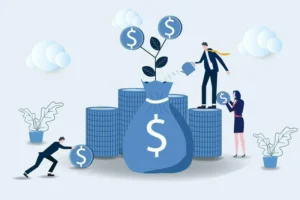Understanding the Complete Financial Landscape of Homeownership
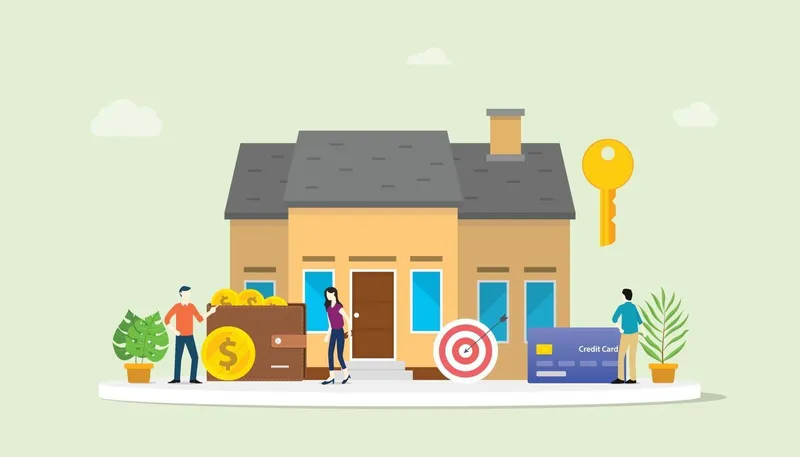
Becoming a homeowner is an exciting venture, but it’s essential to grasp the entire financial picture that accompanies it. Beyond your regular monthly mortgage payment, there are several additional costs and considerations that come into play when you own a home. In this comprehensive guide, we will explore these aspects in detail to provide you with a clear understanding of what to anticipate.
Contents
- 1. Property Taxes
- 2. Homeowners Insurance
- 3. Private Mortgage Insurance (PMI)
- 4. Maintenance and Repairs
- 5. Homeowners Association (HOA) Fees
- 6. Closing Costs
- 7. Mortgage Interest
- 8. Homeowners’ Warranty
- 9. Property Appreciation and Equity
- 10. Energy Efficiency Upgrades
- 11. Landscaping and Outdoor Maintenance
- 12. Unforeseen Life Changes
- 13. Real Estate Market Fluctuations
1. Property Taxes
1.1 What Are Property Taxes? Property taxes are levies imposed by local governments on property owners to fund various public services, including schools, infrastructure, and emergency services.
1.2 Estimating Property Taxes To calculate your potential property tax bill, research the property tax rates in your area. Keep in mind that these rates can significantly vary depending on your location.
2. Homeowners Insurance
2.1 The Significance of Homeowners Insurance Homeowners insurance is a vital safeguard for your property and possessions, providing coverage in case of damage, theft, or unforeseen events. Most mortgage lenders require it.
2.2 Premium Costs The cost of homeowners insurance hinges on factors such as your home’s location, size, and the level of coverage you opt for.
3. Private Mortgage Insurance (PMI)
3.1 Understanding PMI Private Mortgage Insurance, or PMI, is a policy that protects the lender in case the borrower defaults on the mortgage. Typically, it’s required if your down payment is less than 20%.
3.2 How to Avoid PMI To bypass PMI, you can consider making a larger down payment or explore alternative mortgage options like VA or USDA loans.
4. Maintenance and Repairs
4.1 The Cost of Home Maintenance Homeownership entails responsibility for maintaining and repairing your property, from routine tasks to significant renovations.
4.2 Budgeting for Maintenance Budgeting for ongoing maintenance is crucial to ensure your home remains in excellent condition and holds its value.
5. Homeowners Association (HOA) Fees
5.1 Understanding HOA Fees If you reside in a community governed by a homeowners association (HOA), you’ll typically have monthly or annual fees. These fees cover shared expenses and community upkeep.
5.2 HOA Regulations Review the rules and regulations of your HOA to understand how fees are assessed and what services they encompass.
6. Closing Costs
6.1 What Are Closing Costs? Closing costs are expenses associated with the homebuying process, including appraisal fees, title insurance, and legal charges.
6.2 Budgeting for Closing Costs Be prepared for closing costs, which usually amount to 2-5% of the home’s purchase price.
7. Mortgage Interest
7.1 Grasping Mortgage Interest A significant portion of your monthly mortgage payment goes toward paying interest on the loan.
7.2 Impact on Total Cost Consider the long-term consequences of interest payments on the total cost of your mortgage, and explore strategies to minimize it.
8. Homeowners’ Warranty
8.1 What Is a Homeowners’ Warranty? Some homeowners opt for a homeowners’ warranty, which covers the repair or replacement of major home systems and appliances in case of breakdown.
8.2 Evaluating the Need Determine whether a homeowners’ warranty aligns with your needs and whether the benefits outweigh the expenses.
9. Property Appreciation and Equity
9.1 Property Appreciation Though not an immediate cost, understanding how your property’s value may appreciate over time can impact your long-term financial outlook.
9.2 Building Equity With each mortgage payment, you accumulate equity in your home, a valuable asset that can be tapped into through refinancing or selling your property.
10. Energy Efficiency Upgrades
10.1 Reducing Utility Costs Investing in energy-efficient upgrades, such as enhanced insulation, energy-efficient appliances, and solar panels, can lead to long-term savings on utility bills.
10.2 Incentives and Rebates Explore available incentives, tax credits, and rebates for energy-efficient home improvements to help offset costs.
11. Landscaping and Outdoor Maintenance
11.1 Enhancing Curb Appeal Maintaining your property’s curb appeal through landscaping and outdoor improvements may entail ongoing costs.
11.2 DIY vs. Professional Services Consider whether you’ll handle landscaping and outdoor maintenance yourself or hire professionals, factoring in the associated costs.
12. Unforeseen Life Changes
12.1 Budgetary Flexibility Life circumstances can change unexpectedly, affecting your financial situation. Having budgetary flexibility to adapt to such changes is essential.
12.2 Emergency Fund
Maintaining an emergency fund is a wise financial practice to cover unexpected expenses or income disruptions.
13. Real Estate Market Fluctuations
13.1 Monitoring Market Trends Stay informed about real estate market trends in your area. Market fluctuations can impact property values, subsequently influencing property taxes and insurance costs.
13.2 Seizing Refinancing Opportunities When favorable market conditions arise, consider mortgage refinancing as a means to potentially lower your interest rate and monthly payments.
In summary, while homeownership offers numerous benefits, it comes with financial responsibilities beyond the monthly mortgage payment. Proper budgeting and financial planning are essential to manage these expenses effectively and enjoy the advantages of owning a home.

